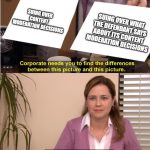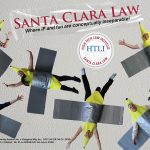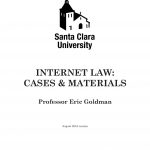
Another Texas Online Censorship Law Partially Enjoined–CCIA v. Paxton
This case involves HB 18, one of the multitudinous online censorship laws the Texas Legislature keeps spewing out. This particular one requires “digital service providers” to age-authenticate all users. [This law extends HB 1181, which also requires age-authentication by some…

Bonkers Opinion Repeals Section 230 In the Third Circuit–Anderson v. TikTok
This decision is bonkers. The majority implies that any effort to curate third-party content automatically converts the third-party content into first-party content so that it no longer qualifies for Section 230 immunity. Because every UGC service necessarily curates every content…

AWS Can’t Shake BIPA Lawsuit for Providing Services to NBA 2K–Mayhall v. Amazon
[This opinion from May just showed up in my alerts. I believe that’s because the court and parties are battling over redactions. There have been other decisions involving BIPA, NBA 2K, and sometimes AWS that I haven’t comprehensively blogged. I…

When It Comes to Section 230, the Ninth Circuit is a Chaos Agent–Estate of Bride v. YOLO
The Ninth Circuit is interpreting Section 230 again. Time to grab your tissue box. * * * The Jenga-ing of Section 230 continues in the Ninth Circuit. This time, the court blows up the Barnes precedent, which created a promissory…

Glassdoor Denied Section 230 Immunity for Reviews from Non-Employees–Nicholas Air v. Glassdoor
This is a confusing case with the troubling outcome that Glassdoor could be liable for third-party reviews despite Section 230. The case is confusing in part because it involves two companies that seem like they are alter egos of each…

Copyright Lawsuit Over Cameo Videos Fails Due to Fair Use (on a Motion to Dismiss)–Santos v. Kimmel
George Santos is the disgraced former Congressmember and a serial fabulist. After he was expelled from Congress, he set up a Cameo page (please don’t give him any money, even as a joke). To mock him, Jimmy Kimmel ordered some…

Ninth Circuit Strikes Down Key Part of the CA Age-Appropriate Design Code (the Rest is TBD)–NetChoice v. Bonta
The California Age-Appropriate Design Code (AADC) is a “think of the kids” law that nominally purports to protect kids’ privacy. However, as I will explain in my forthcoming Segregate-and-Suppress article, it hurts children and advances censorship…so it’s just bad policy–and…

Eleventh Circuit Gives the Slip to the Duct-Taped Banana Copyright Appeel–Morford v. Cattelan
You probably recall this case. A California artist, Morford, created a work called “Banana and Orange” where he duct-taped the fruits to the wall. An Italian artist, Cattelan, created a work, “Comedian,” involving just a banana duct-taped to the wall….

A Report from the White House’s Inaugural “Creator Economy Conference” (Guest Blog Post)
by guest blogger Franklin Graves This week, I joined 100 other creators and creator economy professionals in attending the first ever White House Creator Economy Conference. The event, which I recapped in more detail for another publication, presented an interesting…

Announcing the 2024 Edition of My Internet Law Casebook
I’m pleased to announce the 2024 edition (15th edition) of my Internet Law casebook, Internet Law: Cases & Materials. The book is available as a PDF at Gumroad for $10, a Kindle ebook for $9.99, a softcover version for $20, and a hardcover version for $28. [All…
